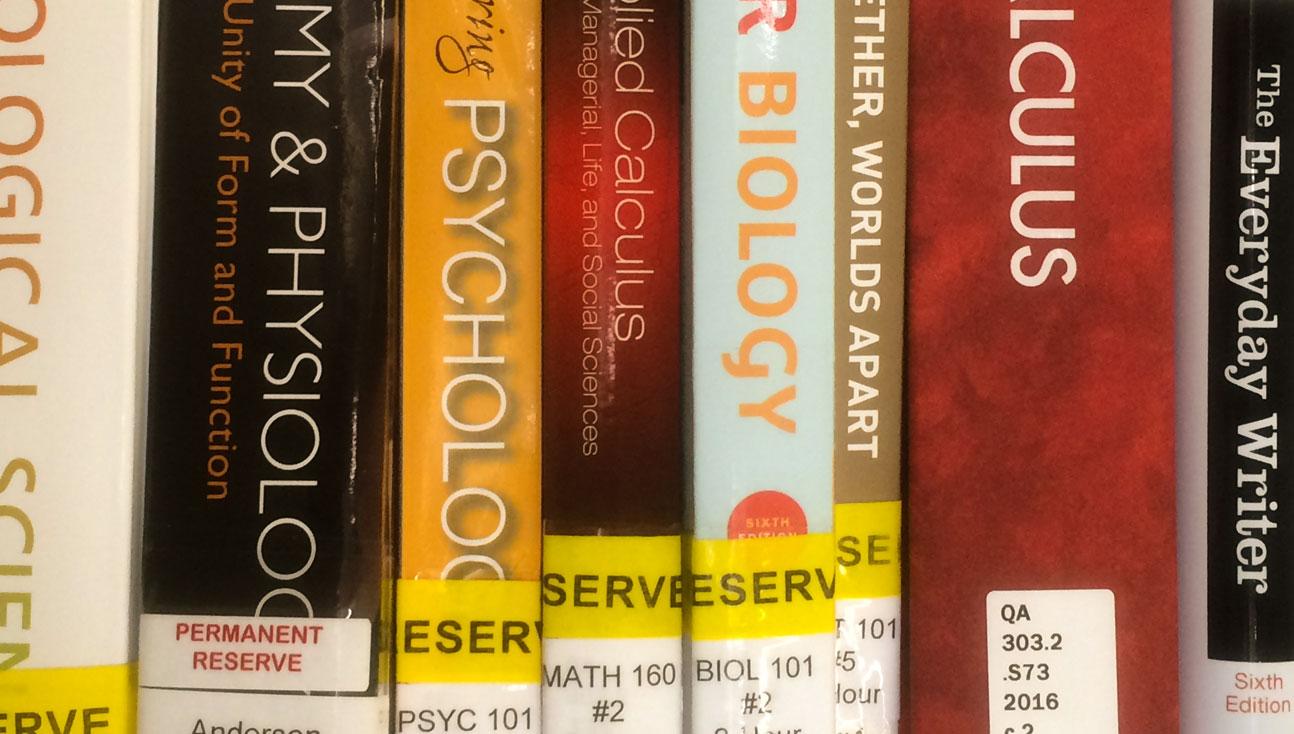
Contributing to Student Success: Textbooks on Reserve

Textbook prices have soared in recent years, often exceeding $200 per book. To help students who were struggling to pay for textbooks or having to decide between buying food and buying books, the SU Libraries in fall 2017 started a pilot project to buy textbooks for selected General Education and introductory courses. We also asked faculty to donate extra copies of textbooks that they might have.
The response was excellent, with nearly 1,000 checkouts in the fall semester, even though we got started late. Student Alexandria Richards commented: “The course reserve program is an amazing resource for helping students save a little money each semester, while also increasing accessibility to current, up-to-date course material. I appreciated the component of instant availability while spending time studying in the library!” The most-used books were in biology, physics, accounting, history and English. Some students visited the Library Service Desk regularly to check out textbooks. In other cases, students who owned the textbook but had not brought it to campus with them used the reserve copy to study or do homework when they had a free hour or two between classes.
Faculty reaction was equally enthusiastic. One science professor observed: “I am excited about this option for students. I have had many times where students tell me that they cannot afford to buy the text until later in the semester and by then they are already behind.” An English 103 instructor noted: “I see students struggle every semester having to make the choice to buy books and which ones to buy. I wasn’t a student all that long ago, and I know that having General Education texts on reserve would have made a WORLD of difference for me. ... I believe this will profoundly benefit our students.”
Putting textbooks on reserve is not a perfect solution to high textbook costs, but it is a way of contributing to student success. Several units on campus are working to address this issue in other ways. The SU Libraries, for example, provide assistance to faculty who want to find and assign high-quality Open Educational Resources (OERs), which are free to users. But for the time being, we are not only continuing but expanding this project to other high-enrollment courses or courses where students struggle to do well.
Please click here if you would like to donate funds to support this effort.